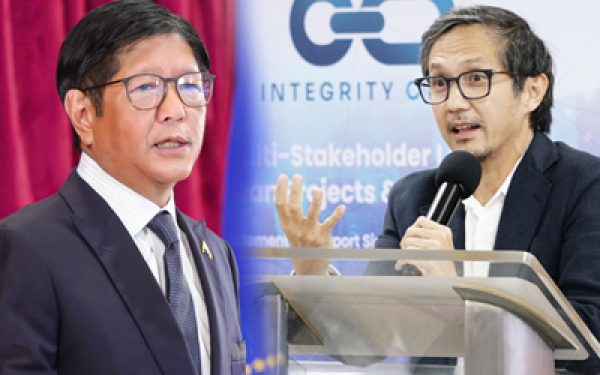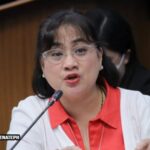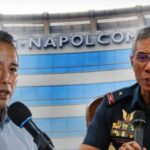Materials for Department of Public Works and Highways (DPWH) projects are being overpriced by up to 50%, including items like asphalt, steel bars, cement, and others.
This was announced by President Ferdinand “Bongbong” Marcos Jr. in his departure speech to attend the 47th ASEAN summit in Kuala Lumpur, Malaysia.
According to the President, DPWH Secretary Vince Dizon uncovered the overpriced materials while continuing his investigation into the agency’s anomalous programs.
Because of this, the President has directed Dizon to reduce material costs by up to 50% to save on capital outlay and ensure that DPWH expenses reflect market prices and that public funds are properly utilized.
The savings, according to the President, could be used for health services, education, and food assistance needed by impoverished Filipinos.
“In order to ensure that the costs of DPWH will reflect the costs of the market and to ensure that the people’s money is correctly spent, I have directed the DPWH Secretary to bring down the cost of materials by as much as 50 percent which will result in savings in the Capital Outlay spending of at least thirty to forty-five billion pesos,” President Marcos explained.
“This is money that we can use for services such as health, education, and food, that our people desperately need,” he added.
Dizon explained that they discovered the overpriced materials while reviewing the DPWH budget for 2026.
“Many of these construction materials have prices that are far from market rates for various materials,” Dizon stated. “If we can lower those prices, we automatically reduce corruption. That’s automatic. Secondly, we also need to closely monitor the construction work.”
Department of Public Works and Highways (DPWH)
The Department of Public Works and Highways (DPWH) is the primary agency of the Philippine government responsible for the planning, design, construction, and maintenance of national infrastructure, including highways, bridges, and flood control systems. It was formally established in 1868 during the Spanish colonial period and has evolved through various reorganizations, most notably after Philippine independence, to become the key institution for national development and public works. Its mission is to provide and manage quality infrastructure facilities and services that are vital to the country’s economic growth and the improved quality of life for Filipinos.
47th ASEAN summit
The 47th ASEAN Summit was a major diplomatic conference held virtually in October 2021 and chaired by Brunei. The summit brought together leaders from the ten member states to discuss regional issues, with a key focus on the collective COVID-19 recovery and upholding stability in Southeast Asia. It resulted in several agreements aimed at strengthening economic and health cooperation among member nations.
Kuala Lumpur
Kuala Lumpur is the capital and largest city of Malaysia, founded in the 1850s as a tin-mining settlement at the confluence of the Klang and Gombak rivers. It grew rapidly due to the tin trade and later became the administrative capital during British colonial rule. Today, it is a vibrant, modern metropolis renowned for its iconic skyline, which is dominated by the Petronas Twin Towers.
Malaysia
Malaysia is a Southeast Asian nation with a rich history shaped by centuries of trade, colonization, and cultural exchange. Its modern identity stems from ancient Malay kingdoms, followed by periods of Portuguese, Dutch, and British rule before achieving independence in 1957. Today, it is known for its vibrant multicultural society, bustling capital Kuala Lumpur, and stunning natural landscapes from tropical rainforests to beautiful islands.
President Ferdinand “Bongbong” Marcos Jr.
President Ferdinand “Bongbong” Marcos Jr. is the 17th and current President of the Philippines, not a place or cultural site. He is the son of former President Ferdinand Marcos, whose 20-year rule was marked by martial law and allegations of corruption. Bongbong Marcos’s presidency, which began in 2022, represents a significant political comeback for the Marcos family.
DPWH Secretary Vince Dizon
“DPWH Secretary Vince Dizon” is not a place or cultural site, but a person who served as the Secretary of the Department of Public Works and Highways (DPWH) in the Philippines. His tenure was part of the “Build, Build, Build” infrastructure program under the Duterte administration, focusing on major national projects like highways, bridges, and airports to modernize the country’s infrastructure.
Filipinos
“Filipinos” refers to the people originating from the Philippines, a Southeast Asian archipelago with a rich history shaped by indigenous cultures and centuries of colonial rule, first by Spain and later by the United States. This complex history has created a unique cultural identity, known for its vibrant festivals, strong family ties, and a blend of Eastern and Western traditions. Today, Filipino culture is also celebrated globally through its cuisine, music, and its diaspora of overseas workers.
Capital Outlay
“Capital Outlay” is not a specific place or cultural site, but rather a financial and governmental term. It refers to the money spent by a government or organization to acquire, maintain, or upgrade fixed assets like buildings, infrastructure, and equipment. Therefore, it does not have a history as a location, but as a budgeting concept used in public finance and corporate accounting.



